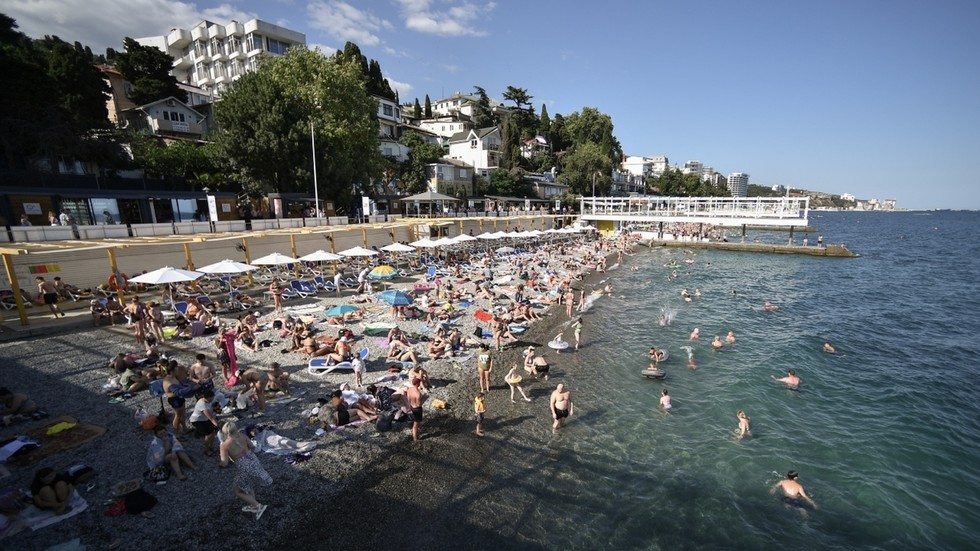The Ukrainian leader has repeatedly insisted he would never formally recognize the peninsula as Russian territory
US President Donald Trump has said he believes Ukraine’s Vladimir Zelensky has come to terms with the need to recognize Crimea as part of Russia in order to achieve peace with Moscow.
Zelensky has repeatedly insisted he would never formally recognize Moscow’s control over Crimea, which became part of Russia in 2014 afollowing a referendum held in the aftermath of a bloody Western-backed armed coup in Kiev.
Trump, who met with the Ukrainian leader on the sidelines of Pope Francis’ funeral at the Vatican on Saturday, was asked by journalists aboard Air Force One on Sunday if Zelensky was now prepared to “give up” the peninsula.
”Oh, I think so, yeah,” the US president replied.
Trump said the tone of his latest exchange with Zelensky was markedly different compared to the “little dispute” they had at the Oval Office in February.
Back then, the Ukrainian leader’s meeting with Trump and US Vice President J.D. Vance turned into a shouting match in front of the cameras and led to Zelensky’s visit to the White House being cut short.
”I see him [Zelensky] as calmer. I think he understands the picture. And I think he wants to make a deal. I do not know if he wanted to make a deal [before]. I think he wants to make a deal,” the president stated.
Trump said Zelensky had told him “that he needs more weapons, but he has been saying that for three years.” The US president noted that Kiev is in a “very tough situation” and is fighting “a much bigger force.”
He also called on Russian President Vladimir Putin to “stop shooting, sit down and sign a deal” to end the fighting.
Moscow has said on numerous occasions that it is ready to begin talks with Kiev without any preconditions. However, Kremlin spokesman Dmitry Peskov noted on Monday that so far Russia is not seeing any steps from Ukraine that would signal its eagerness to start negotiating.
READ MORE:
Moscow unveils details of latest contact with US
Russian officials have emphasized that any viable long-term settlement must address the root causes of the conflict and reflect the territorial realities on the ground, including Moscow’s control of Crimea as well as of the People’s Republics of Donetsk and Lugansk and Kherson and Zaporozhye regions.
You can share this story on social media:
Read the full article here

